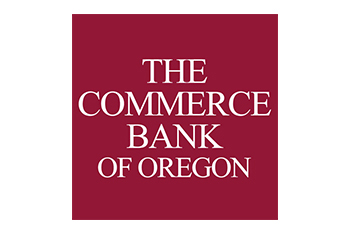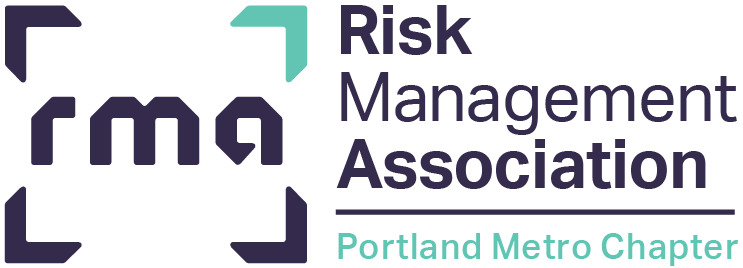We have likely all heard the stories, maybe even from our own customers! A long‑term trusted employee (we’ll call him Vic) betrayed that trust. Some time ago, maybe years, Vic ‘borrowed’ $500. He has the best intentions to pay it back from his next paycheck. But, of course, on the next payday, Vic actually needs to ‘borrow’ more. Since Vic is the Company’s Controller and the owner trusts him like family, he is an authorized check signer, has control of the general ledger and reconciles the bank accounts. Now 3 years after his first ‘loan’ Vic owes his employer over $350,000! What started out as a ‘need’ quickly became a ‘lifestyle’. Eventually, Vic’s exploits are exposed but not before he spent all the money. Vic has few assets to use for restitution and the Company’s crime insurance policy is only for the $50,000 that was included in the standard owner’s policy.
The Company’s owner is shocked and embarrassed by the discovery of Vic’s actions. She is also not very happy with her bank and professional advisors for missing the red flags of theft. So are there some recommendations we can make to help business owners avoid being defrauded by trusted employees? Here are our top 10, none of which are hard or expensive to do:
#1 – GAP Analysis – Encourage the owner to gather her bank and professional advisors to discuss the inherent fraud risks of her Company. For example, the risks of a retail business are quite different than an architecture firm. After identifying the inherent risks, the owner can better evaluate the controls in place and identify the gaps.
#2 – Hotline – The owner may want to consider implementing an anonymous hotline. Co‑workers are often the first ones to notice a colleague’s change in lifestyle or stresses in their life. Providing a safe and anonymous way to express their concerns is a powerful deterrent. Hotlines can dramatically reduce the length of time embezzlement continues (and thereby reduce the loss).
#3 – Positive Pay – Offered in some form by most banks, Positive Pay is not only a strong control to help prevent external theft, it can be effectively used to help deter employee embezzlement too. Treasury management professionals can recommend solutions to help protect against check fraud and ACH electronic transaction fraud as well as options for transaction blocks, dual controls, online user permissions and alerts to help strengthen the Company’s bank account protection strategies.
#4 – 2nd Bank Statement – What if the owner received her own copy of the monthly bank statement directly from the bank? Knowing the boss is looking at the bank statement can be a powerful deterrent.
#5 – Segregate Duties – Vic was an authorized check signer, recorded the checks and reconciled the bank account. If he had been prevented from performing any one of these tasks his embezzlement would have been stopped.
#6 – Payroll – Embezzlements through payroll are common and can continue for a long time. Let’s face it, even though they should, many business owners do not review the payroll register. But even an occasional ‘surprise’ review might reveal phantom employees, inflated pay rates, overtime and bonuses.
#7 – Call Back Verifications – We know it can be a hassle but what a great deterrent to fraud a call back can be. Having the owner accept a short call from the bank to verify an outgoing wire or ACH can be the best phone call she has ever received.
#8 – Crime Insurance – Companies often carry an owners’ package as a best practice or bank loan requirement but how often do they bind a higher limit for the crime risk. While not a substitute for strong controls, insurance can make all the difference if fraud occurs. Investigating fraud can be expensive (fees for attorneys’ fees and forensic accountants, for example). In addition, seldom are there assets available for restitution.
#9 – Vacations – Ask the owner if their Controller takes an annual vacation. Does someone perform his duties in his absence, especially reconciling the bank statement? Check out this story to learn how an employee’s $52 million embezzlement was uncovered while she was on vacation.
#10 – Background Checks – The Association of Certified Fraud Examiners reports that the vast majority of fraudsters are first time offenders but companies should still insist on a thorough background check (don’t assume the search firm has done one for you). Background checks are fast, easy, inexpensive and can save the company a bundle down the road.
So there you have it, ten simple ideas to discuss with your customers. Consider introducing one or two ideas at a time to your business owner customer. The Company’s Controller should welcome this discussion and offer additional ideas.
If you think the conversation will be difficult, compare it to a conversation after a fraud is discovered. Invite your treasury management colleague to join you in meeting the customer. Need more information, invite a treasury management specialist and a certified fraud examiner (CFE) out for a cup of coffee.
About David Porter:
Responsiveness, creativity, and client focus: these aspirations have guided Dave Porter over the course of his career. After 15 years in public accounting with a Big 4 firm, Dave started and led two successful consulting firms over the next 14 years before coming aboard. “Running your own business is an eye opener. The experience has shaped the way I serve clients today. There’s no better way to learn about a company’s issues than by sitting down with the owners, especially when you’re a business owner yourself.”
Dave also helps companies develop stronger internal controls to help prevent and mitigate risks associated with occupational fraud and assist the victims of fraud recover. “Business owners are focused on running their companies, and may not stop to consider that a trusted employee might be stealing from them.” This need led Dave to launch Geffen Mesher’s Forensic Accounting group. Under his leadership, the group has quickly become a well-rounded and sought after forensic team.
When he’s not sitting down with business owners, Dave likes to hit the open road on his motorcycle, packing everything from hiking boots to his nine-iron. “The typical ways people like to relax in the Northwest.”
About Lorrie Nelson:

Lorrie Nelson comes to The Commerce Bank with over 30 years of banking experience, starting at US Bank in southern Oregon. Providing outstanding customer service has always been Lorrie’s focus, which led her to Sterling Bank as the first Corporate Banking Representative in Portland, later moving into Treasury Management as a sales consultant. She joined Umpqua Bank through the merger in 2014.
“I’m excited for the opportunity to be part of the Commerce Bank of Oregon team, helping to build and maintain great relationships with so many valued business clients. As a division of Zions Bancorporation, N.A., we offer the best of both worlds – the personalized care of a small bank backed by the strength and services of a large bank. Clients want someone who knows them and is responsive to their needs, and that is what we offer here at The Commerce Bank of Oregon”.
As Senior Treasury Management Sales Officer, Lorrie works with businesses to offer services that provide greater efficiencies and security tools for each company’s cash management processes. Lorrie holds the Certified Treasury Professional (CTP designation and is a member of the Association for Financial Professionals of Oregon and Southwest Washington.
A native Oregonian, Lorrie loves the beautiful and diverse nature found in the Pacific Northwest. She enjoys reading, taking trips to the beach with her husband, and having fun times with their grandchildren.
